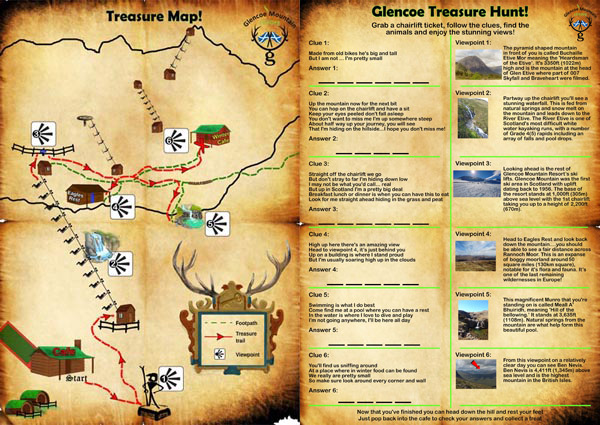A few weeks ago, a reader said this:
- "Instead of talking about the gloom and doom of the death spiral, why not be optimistic and make the discussion fun ... like in the way a Treasure Hunt is fun??"
Think about the topic this way. The "Death Spiral" generally happens when Management reacts to changes in business performance. In other words, the "Death Spiral" is frequently caused by Management.
In the same fashion, a "Treasure Hunt" can be created by Marketing as a response ... a credible response.
Think about the elements of a Treasure Hunt:
- An entire world must be created - one that the participant wants to be part of.
- There is a problem to be solved - and the clues make solving the problem fun.
- There is competition. The participant is battling somebody else for a treasure.
- There is a TREASURE at the end, and most participants will not share in the treasure.
This brings us back to Marketing. We don't market to prospects as if we even care, do we?
Do we create an entire world around our "brand"? Almost never. Think about it this way ... what is the world that Macy's creates? Creating a world is HARD WORK, and it doesn't always work, does it? The easy half of creating a world is called "brand marketing". It's easy to create imagery that generates feelings, and it's easy to link that to customer service and pricing etc. It's HARD WORK to create an actual world that the customer wants to be part of.
Problem Solving - what is the problem the customer is trying to solve? Do you give the customer clues to solve their own problem(s)? Think about email marketing ... we tell the customer that we have a "Friends and Family" event and that just about every living person on the planet gets 40% off as a result. That's not much of a treasure. Think about how you could use email marketing to solve problems that lead to a treasure.
Competition - this is what the Fast Fashion folks figured out ... they sold limited quantities of merchandise, creating a "competition" that resulted in urgency. What sense of urgency exists when you can buy the same pair of Dockers in any channel at any time? There's no urgency, is there? None! The marketer must create urgency.
Treasure!! Apple understands the treasure (or at least they used to understand it). Think about customers waiting to buy a new iPhone. There needs to be a Treasure at the end of the Hunt, and the Treasure should be something that conveys status. What do you sell that represents the Treasure at the end of the hunt?
This brings us back to the concept of a seamless / frictionless omichannel shopping experience. Boring!!! It's comparatively easy to sell the same products in all channels at the same price and to integrate everything together ... it just takes software and money. In the Treasure Hunt mindset, the omnichannel solution is a small part of the treasure. If you want a customer to earn a treasure, you might require the customer to buy in an omnichannel manner (i.e. buy online pickup in store).
This transitions us to the concept of a Treasure Hunt within the structure of a Loyalty Program. Instead of giving the customer points when the customer buys something, why not create a Treasure Hunt???? Why not given the customer 10 points when the customer buys in store and 2 points when the customer buys online? That'll push a customer into your store, I can guarantee you that much!! Make your points structure flexible so that if you are having a hard time selling Widgets then you give more points for Widgets purchases. Give five times as many points to the customer when the customer buys new items ... thereby growing new merchandise sales (which means you'll sell more existing merchandise in the future). Use email to give clues that allows the customer to find the items that earn the most loyalty (treasure) points. DO SOMETHING!!!!!! Use email marketing to offer quadruple point events on specific items that are important to the Treasure Hunt. And then tell a compelling story around the items that support the Treasure Hunt.
Give the customer something the customer will actually treasure. If the customer earns 60 Treasure points the customer gets an actual ... wait for it ... wait for it ... an actual TREASURE!!! Something nobody else gets. Put your product people / merchants to work to come up with something amazing that only those who win the treasure hunt earn.
What am I trying to say here?
I'm trying to say that the Marketer pulls a company out of the Death Spiral. Yes, merchandise is most important ... but the Marketer has a key responsibility to generate interest ... the marketer creates a Treasure Hunt that causes the customer to want to buy something.
Go do that, ok?



No comments:
Post a Comment
Note: Only a member of this blog may post a comment.